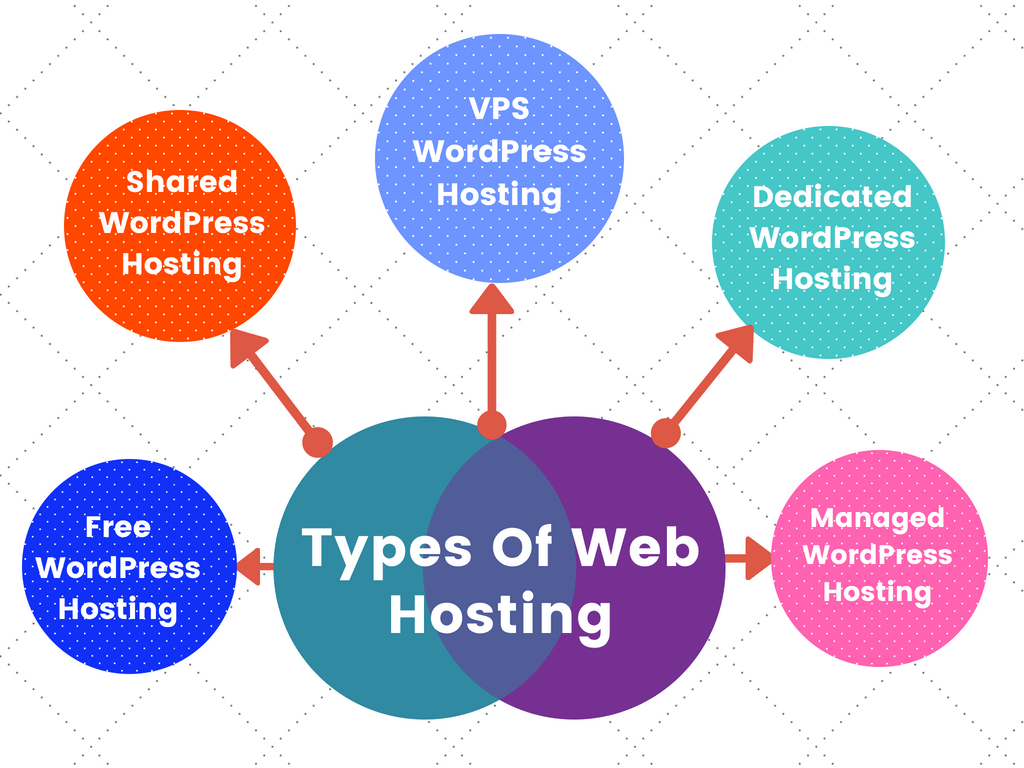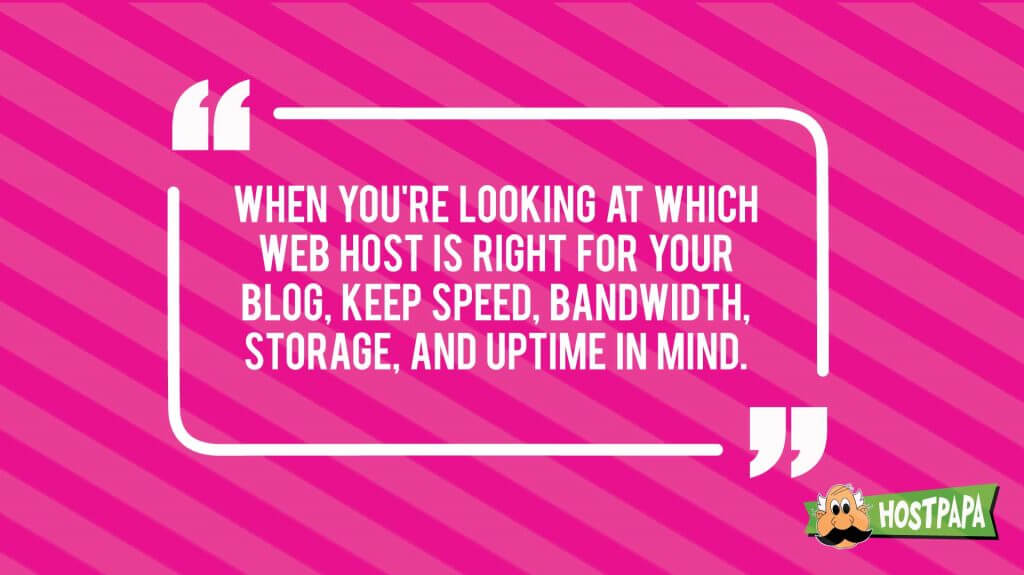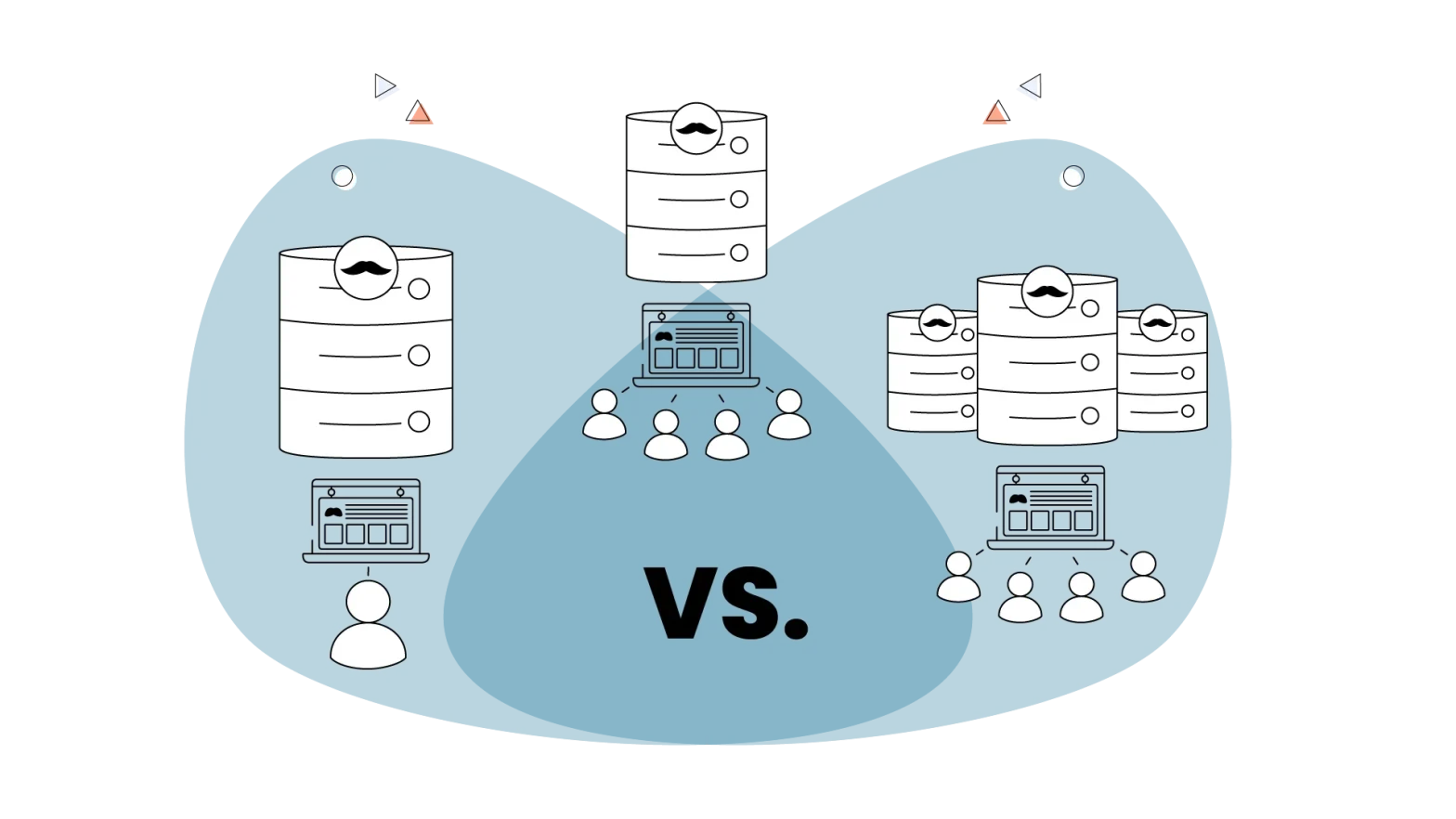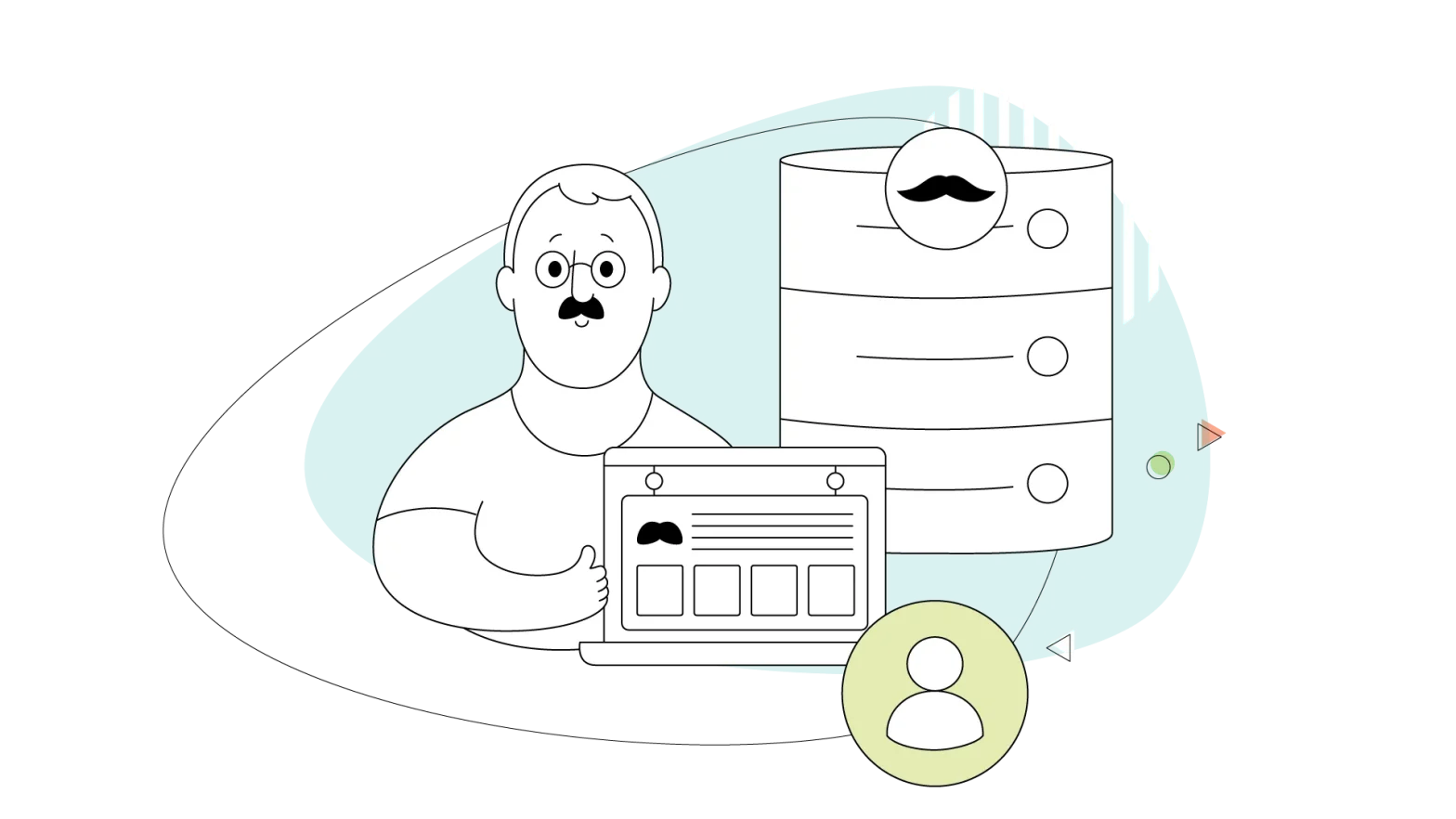Starting a blog is an exciting new venture. You get to share your expertise with your target audience and build a community around shared interests. Blogs are excellent ways to establish your authority on a particular subject and develop a following for your brand. One of the most important things to consider when starting your blog is your web hosting provider.
Your hosting provider decision will affect many things about your blog, such as your bandwidth, speed, uptime, and so much more. Here’s what you should be on the lookout for when selecting your blog hosting provider.
Think Long-Term
Think of your blog like a business: you’re offering your readers content, but what are they giving you in return? Your blog needs a proper strategy to get started, and your web hosting provider helps you achieve that strategy.
First, you’ll need to establish what kind of blog you want:
- Personal brand: A blog for an individual, where you share your thoughts or content in a particular niche you have expertise in. It’s a great way to build a following.
- Corporate or business: This is a strategic way to share your company’s knowledge in particular products or services. Content in this type of blog is all about solving the customer’s problems.
- Thought leadership: It can be both for an individual or a business. Thought leadership content relies on extensive research and experience in a particular field.
- Affiliate: Focused on product reviews or tutorials, with a call to action to purchase those products through an affiliate link. SEO is critical for this type of blog to succeed.
These are just a few of the different types of blogs you could choose. The kind of web host you use for a personal brand blog will differ from a business blog. That’s why it’s critical to figure out your blogging goals, as you need to ensure your web host can support them.
Once you’ve established the kind of blog you’re launching, consider what your goals are:
- How much traffic do you expect your blog will get each month?
- How many new subscribers do you want in the first year?
- Do you want to monetize your blog, and if so, how?
Answering these questions at the beginning will help you find a web host that’ll help you reach your goals.

Understand the Different Types of Web Hosting
Like blogs, web hosting comes in many different varieties. The kind you need to host your blog on will depend on the goals you’ve outlined in your blogging strategy.
How much traffic you anticipate, what kind of uptime you need, and your budget are only a few factors that determine the right kind of web hosting for your blog. Here are your options:
- Shared hosting servers: If you’re just starting your blog and don’t have a ton of traffic yet, shared server web hosting is the right choice. While you’ll be sharing server space with other websites, you’ll also benefit from lower costs.
- Virtual private servers (VPS): With a VPS, you share space on a server with other sites, but you’re hosted on a private server virtually. This is ideal if you want to have more control over your web hosting, but don’t need the bells and whistles that come with a dedicated server.
- Dedicated hosting: With this option, you rent a whole server just for your blog. If you anticipate a ton of traffic and want more control over your server, go with this option. Keep in mind though that this service has a higher price tag.
- WordPress hosting: If you plan on building your blog on WordPress, consider using a tailored server for this platform. It’s a shared server, but you get hosting already customized to your WordPress needs and specialized support.
- Cloud-based web hosting: If you’re anticipating your blog will really take off, then a cloud option might be right. Cloud-based hosting creates one large server in the cloud, letting you do things you couldn’t do with standard hosting, like drawing resources from multiple servers for, say, a spike in traffic.
Consider Speed, Bandwidth, Storage, and Uptime Needs
There’s a lot of information that you can share on your blog, depending on your field of activity and goals. Whether you’re establishing a personal brand or a business one, it’s important to make your content easily accessible to your audience.
If a reader ventures to your blog and the page takes several minutes to load, they’ll likely get frustrated and leave. Not only will a slow load turn off readers, but it’ll also negatively impact your SEO.

When you’re looking at which web host is right for your blog, keep speed, bandwidth, storage, and uptime in mind. Consider what the server’s website loading times are, and how they compare with other web hosts.
You’ll also want to see how much storage space is available with each kind of package. If you’re going to have a lot of images and photographs on your blog or use a lot of video and audio files, you’re going to need space to store everything.
The amount of bandwidth you need will depend on how much traffic you anticipate. Different types of web hosting come with varying bandwidth, and there is usually a quota for how much bandwidth you can use at one time. If you expect a lot of traffic consistently, then you’ll need more bandwidth.
What happens if a reader heads to your website only to find out it’s down? Will they ever want to return? Uptime is critical to many businesses and blogs alike. Aim for an uptime of over 99.94%. This way, your website will be available whenever your readers want to read it.
Figure Out the Security Features You Need
Security is a concern, no matter what kind of blog you have. To protect your blog from the ever so common security threats, we recommend you pay attention to the security features your web host offers.
Consider using a web hosting provider that automatically scans your blog for potential malware and threats regularly. Ask about whether the web host uses SFTP (Safe File Transfer Protocol) and SSL (Secure Sockets Layer) certificates. This is especially important if you’re selling anything on your blog and collecting personal or financial information.
While disasters are rare, they can happen at any time. That’s why having a secure, regular backup is key. This way, if anything goes wrong, your blog will be safe. Find out how the web host backs up their servers and where the backups are stored. Automated backups give you peace of mind, so you don’t have to worry about losing your expert content.

Match Customer Support to Your Technical Skills
Here’s the thing when it comes to customer support: you may not ever need it – but when you do, it’s priceless. Consider your technical skills and whether you’re able to troubleshoot issues on your own.
If you’re a tech wiz, maybe customer and technical support isn’t as relevant to you. If you’ve just started blogging and still learning, having a team of experts ready to help goes a long way.
Ensure that the web host offers 24/7 customer support on the phone/chat in a language you’re comfortable with. A 24/7 chat option will ensure you’ll never have problems reaching out to them, regardless of where you are.
Last, make sure that the customer support can help you with technical issues if you need it – not just account problems. In some cases, the technical support is considered a separate service.
Align Your Web Hosting to Your Blogging Strategy
When you’re setting up your blog and looking for a web hosting provider, always think back to your blogging strategy. This will help guide you when it comes to picking a web host. Not all web hosts provide the same level of features and support, so it’s crucial to choose one with everything you need to help you achieve the goals you’ve set for your blog.




